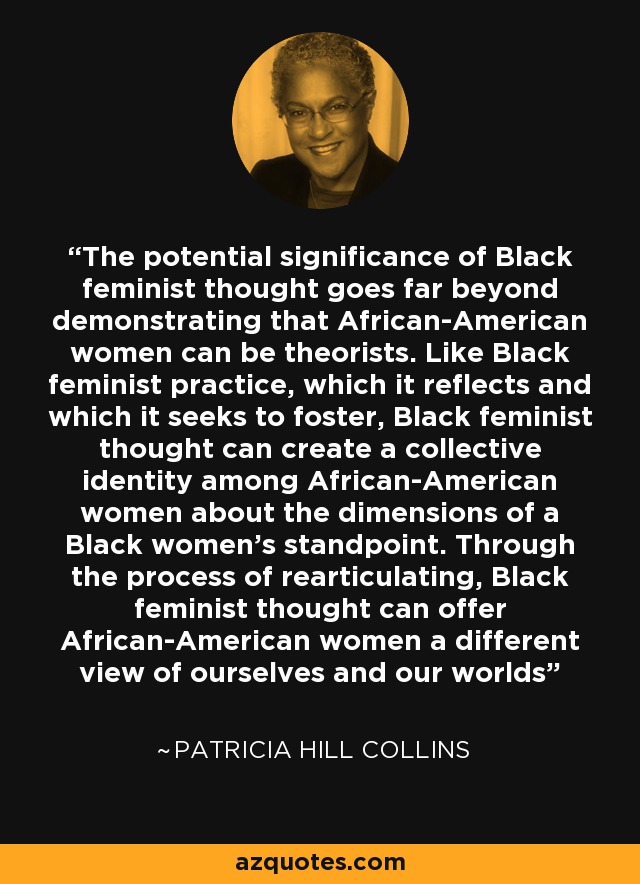
She grew up an only child in a working-class family and was educated in the public school system. Patricia Hill was born in Philadelphia in 1948 to Eunice Randolph Hill, a secretary, and Albert Hill, a factory worker and veteran of World War II. Published Works: Black Feminist Thought: Knowledge, Consciousness and the Politics of Empowerment, Black Sexual Politics: African Americans, Gender, and the New Racism, From Black Power to Hip Hop: Racism, Nationalism, and Feminism, Another Kind of Public Education: Race, Schools, the Media and Democratic Possibilities, Intersectionality. Parents: Albert Hill and Eunice Randolph HillĮducation: Brandeis University (B.A., Ph.D.), Harvard University (M.A.) The paper demonstrates using qualitative analysis, post-structural leaning, field interviews, and archival records, that while gender and class categories may be critical constituents of WeppaWannocosmology, flexibility of gender as a thought construct was far more important in most part of Africa in the definition of power, although such factors as achievement and ascription were essential.Known For: Distinguished University Professor of Sociology at the University of Maryland, College Park, first African-American female president of the American Sociological Association Council, esteemed author focusing on gender, race and social equality.īorn: May 1, 1948, in Philadelphia, Pennsylvania Thus stirring the trajectory from the familiar approach of Western-focused critic of pre- and post-colonial Africa, this paper views the evolving manifestations of feminine and gender-roles in WeppaWannoland as flexible and varied with the positioning of community’s cultural and socio-political experiences through the spectrum of Arabic, and Western colonial influences. Gender Roles, Colonial, Perception, Invasion, Cultural SubversionĪBSTRACT: In this work we have argued that the post-independent WeppaWanno patriarchal system has evolved not from its cultural past but as influenced by the duo cultural tragedies implicated in Nupe Islamic invasion and the British/Christian colonial rule.




The Shifting Feminine Statuses among Indigenous Peoples: Rethinking Colonization and Gender Roles among the WeppaWanno People of Mid-Western NigeriaĪUTHORS: Michael O. Collins (Ed.), Black Feminist Thought: Knowledge, Consciousness, and Politics of Empowerment (pp. Black Feminist thought in the Matrix of Domination.


 0 kommentar(er)
0 kommentar(er)
